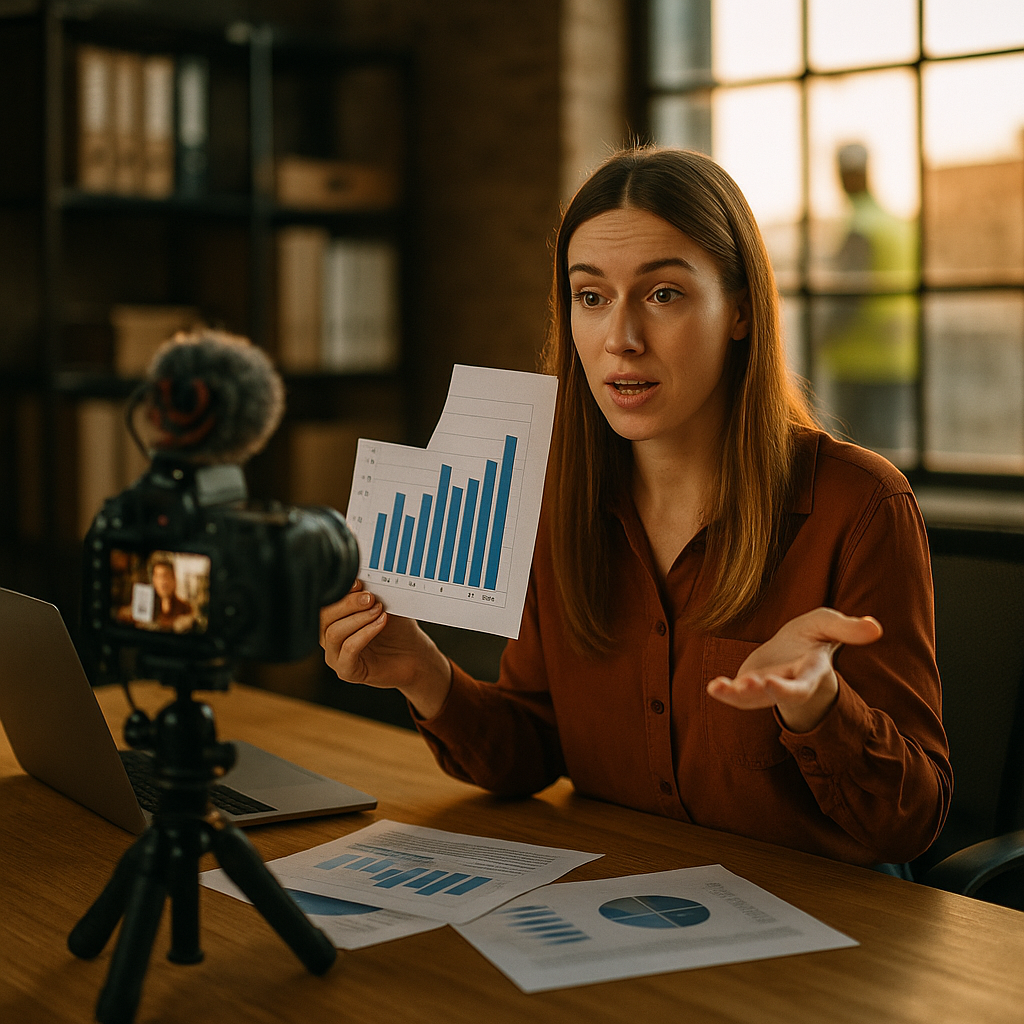Executing a successful influencer marketing campaign in a “dry” B2B industry can seem daunting, but it’s entirely possible with the right approach. Specialized sectors like industrial manufacturing or SaaS can benefit just as much as consumer brands. Discover how expert strategy, authentic voices, and measurable goals brought impressive results in this in-depth case study.
Building Trust: The Power of B2B Influencer Partnerships
Influencer marketing in B2B industries hinges on trust and expertise. Unlike the fast-paced consumer world, decision-makers here look for credible voices who truly understand their niche. According to the 2024 LinkedIn-Edelman B2B Thought Leadership Impact Report, 69% of B2B buyers consider peer recommendations highly influential in their purchase process. By carefully selecting thought leaders—such as industry analysts, consultants, or niche-focused content creators—companies in “dry” sectors can unlock valuable engagement and nurture long-term relationships.
Understanding the Audience: Mapping Pain Points for Better ROI
For this campaign, a leading B2B logistics software provider wanted to reposition itself in a market with limited excitement or emotional pull. First, we mapped the exact pain points of procurement managers, the primary buyers. Through surveys and direct feedback, key frustrations surfaced: cost unpredictability, compliance headaches, and clunky integrations. By analyzing these insights, we worked with influencers who could address these specific problems with authority, ensuring the campaign’s messaging spoke directly to real and current industry challenges.
Creative Storytelling: Making B2B Solutions Relatable
Transforming technical topics into relatable stories is crucial in influencer marketing for B2B sectors. In this campaign, selected influencers shared detailed, firsthand case studies on pain points they’d personally experienced and resolved with the logistics software. Using formats such as
- short-form LinkedIn videos,
- interactive webinars,
- detailed blog posts,
these influencers demonstrated problem-solving in action. By maintaining authenticity and focusing on tangible outcomes, the campaign content not only captured attention but positioned the brand as a genuine partner in operational success.
Measuring Impact: KPIs That Matter for B2B Influencer Campaigns
B2B influencer marketing isn’t about likes or shares alone—it’s about meaningful leads and measurable business outcomes. For this campaign, key performance indicators (KPIs) included:
- Number of qualified leads generated via influencer channels
- Direct demo bookings originating from campaign content
- Engagement metrics on LinkedIn posts and webinars
- Increases in inbound website queries attributed to influencer-referred traffic
By Q2 2025, the campaign saw a 37% uptick in qualified demo requests and a 21% increase in pipeline opportunities compared to the previous quarter. Clear reporting and agile content optimization ensured ongoing success and justified marketing spend.
Lessons Learned: How to Replicate Success in “Dry” Industries
This campaign proved that B2B influencer marketing can flourish outside glamorous verticals. Here’s what worked:
- Prioritize Relevance over Reach: Choose influencers with deep-sector expertise, not simply a large following.
- Empower Real Stories: Let influencers share authentic problem-solving journeys aligned with your product’s unique strengths.
- Focus on Business Value: Highlight measurable benefits—cost savings, efficiency gains, or regulatory compliance.
- Track with Purpose: Align campaign KPIs with overall business goals for clear ROI measurement.
With these principles, B2B organizations in even the most technical fields can turn influencer partnerships into a sustainable growth channel.
FAQs: Influencer Marketing for B2B Industries
-
Is influencer marketing effective for B2B sectors?
Yes. When executed with sector experts and authentic voices, influencer marketing fosters trust, shortens sales cycles, and drives qualified leads—even in technical or “dry” industries. -
How do I find the right influencers for a niche B2B audience?
Seek out thought leaders on LinkedIn, industry forums, and technical blogs. Prioritize subject-matter expertise, professional credibility, and audience alignment over sheer follower numbers. -
What KPIs should B2B influencer campaigns focus on?
Key metrics include qualified leads, demo requests, engagement on educational content, and conversion rates tied to influencer-referred traffic. -
What types of content work best for B2B influencer marketing?
Long-form case studies, webinars, thought leadership articles, and practical video explainers generally resonate well with B2B buyers. -
How long before results are visible in B2B influencer campaigns?
B2B cycles are longer than B2C. Initial engagement and lead generation may be visible within 2-3 months, with a tangible impact on pipeline and sales in 6-12 months.
In summary, this case study proves that with smart strategy and the right voices, influencer marketing delivers substantial ROI in even the most “dry” B2B industries. Focus on expertise, authenticity, and business impact for campaigns that resonate and drive growth.
